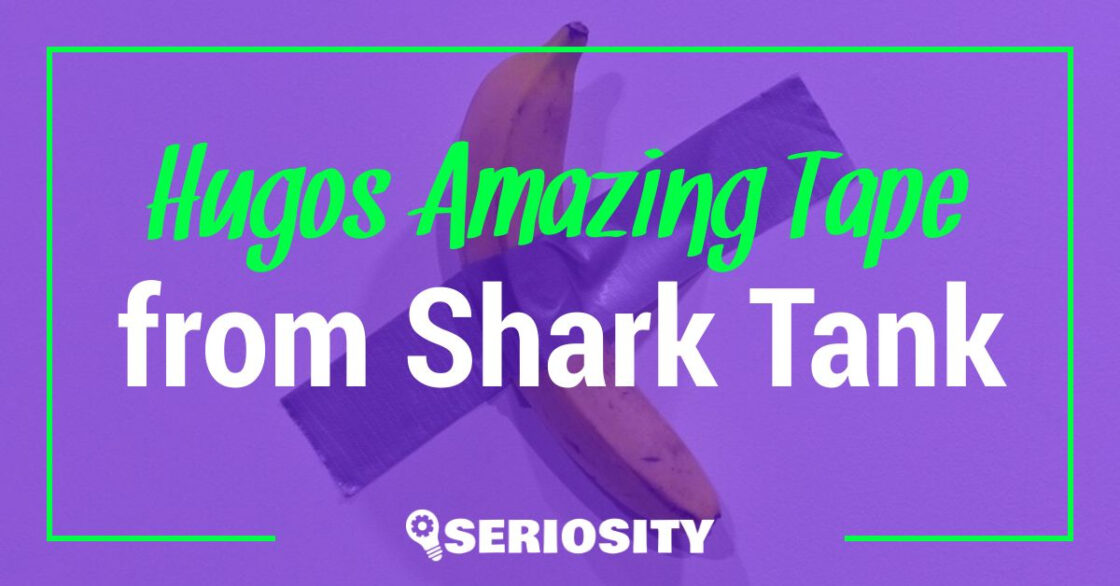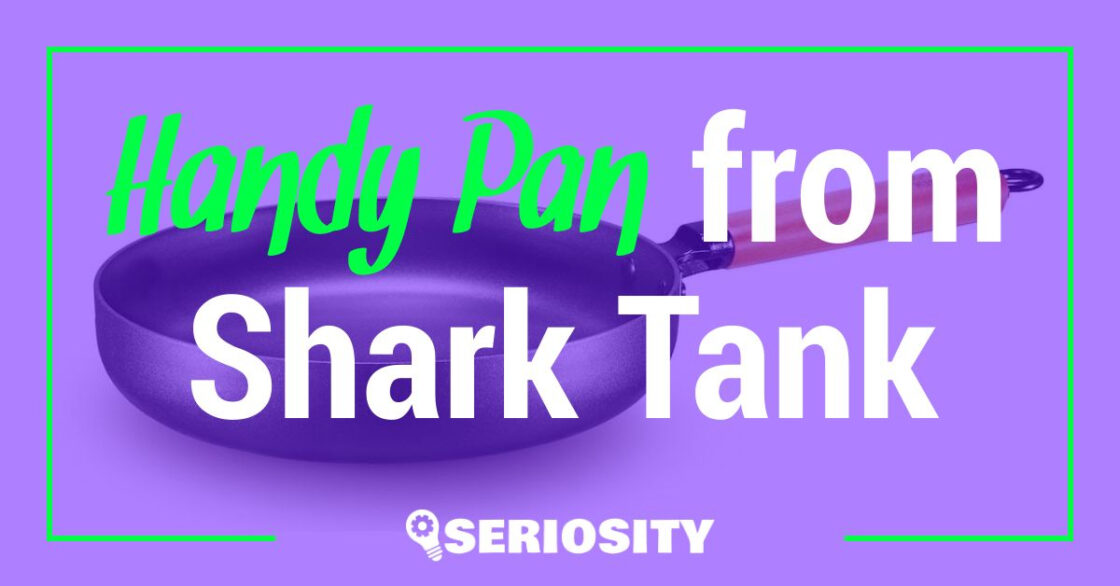Co-founders Ellen Hodges and Omayya Atout appeared on Shark Tank season 13, hoping to make the Sharks dance to their tunes. Their service-based business, Songlorious, was spinning the traditional methods of gift-giving on their head.
The duo took the concept of grand gestures and turned it into an affordable and personalized experience meant to last a lifetime. They had amazing sales and a supportive team and were looking for a Shark to invest $400,000 in their business for 10% equity stakes. All Sharks found the business promising and were interested in securing a share.
What Is Songlorious?
Songlorious is a service-based business offering custom-made songs to its customers in three easy steps. All songs ordered at Songlorious are made from scratch and deliver studio-quality finesse only seen in a professional’s work.
The service triumphs the viability of traditional gifts and is bound to get a strong emotional reaction from your loved ones. With Songlorious, customers can capture the essence of their most cherished memories and still create new ones as it promises an experience that is personal and ever-lasting
Musicians and co-founders Ellen Hodges and Omayya Atout took the Shark Tank season 13 stage to pitch for their service-based business Songlocious. They explained that with over 100 artists on their team, they are able to provide unique and personal tunes to their customers without a lick of repetition in the mix.
Customers can go to their website, choose a genre, tell their story, and viola! They’ll have their special song delivered to them in no time.
To demonstrate how things worked behind the scenes, Ellen and Omayya sang a customized song for the Sharks, eliciting amused responses from them. They then asked the Sharks which one of them was ready to rock and roll with them into the future of gift-giving!
Kevin asked the duo to further explain the mechanics behind their business. Ellen elaborated that the pricing for their service varied depending on the genre and length of the songs.
Acoustic versions or 30 seconds songs were priced cheaper than a full production, folk, country, EDM, and pop rock of 3-minute length. She added that the artist was responsible for providing instrumentation and production of the song.
Guest Shark Peter asked if they had freelance artists on board and, if yes, how much they paid them. Ellen admitted that they indeed had freelance artists working for them, and they paid them 35% to 55% per order cost, plus they got to keep 100% of the tips that averaged 51 dollars.
Once the mechanics were out of the way, the Sharks inquired about their sales and profits. Omayya took the lead here, revealing that they had made $700,000 last year and $1.1 million this year. While Mark and the rest were impressed by the numbers, Kevin wanted to know about the bottom line profits.
Omayya told him they had 9% in profits, and Mark pressed if it was before or after they paid themselves, and the musician replied the latter. His answer made the Sharks bite their tongues, so Omayya decided to explain their origins to give them more context on their situation.
Omayya and Ellen shared an apartment with their other flatmates in Brooklyn when Omayya got an opportunity to make a personalized song for one of Ellen’s friends at her wedding just before the pandemic hit.
Things escalated from there, and as the orders started rolling in, the duo’s abilities as musicians stretched thin. They were glad when artists looking for jobs and side gigs reached out to them for work opportunities.
Eventually, they decided to turn it into a business, so Omayya used his personal credit card to start the website. Since then, they have put everything they are making back into their business.
The duo told the Sharks that although they have come a long way, they needed help to scale and market their business. They wanted to replicate their business model in other languages, dive into the wedding sector as there were a lot of opportunities, and sneak into the corporate world.
They have made songs for weddings and employees who were promoted and knew there was room to camp there.
Peter offered them $400,000 for the third of their business, citing that he had experience with growing business and had dabbled in similar concepts in the past. He elaborated that their technology was vital to blowing up the business internationally, and he was just the Shark for that.
Daymond was hot on Peter’s heels and offered $400,000 for 20% equity stakes.
Kevin roped in Mark for a joint offer of $400,000 for 25% equity stakes. He explained that with his expertise in the wedding sector and Mark’s technical acumen, the founders had all boxes checked for scalability.
Mark jumped in, saying he had a better idea, and offered a three-way deal with Peter and Kevin for 33% stakes. He explained Peter could help with the international glow-up, Kevin could deal with weddings, and he could take care of the technological aspect of the business. Peter found the offer sound and agreed to join in.
At this, Daymond complained he felt left out, so Mark told him they were throwing him under the bus because he doubted the duo would give up 40% stakes of their business. Daymond joked about doing it for diversity’s sake and was instantly shot down by Mark.
Still, Mark amended his offer, saying if the duo agrees, they can do 40% for $500 with four sharks because Daymond’s media connections were crucial for a business like theirs.
Seeing the other Sharks all riled up, Lori barely got a word in and kept out of the negotiations.
After a private discussion, Omayya countered with $800,000 for 40% stakes, and Peter called him on being greedy. He added that what they were offering was reasonable and benefitted everyone.
At last, the duo agreed and closed the deal with four Sharks.
Songlorious is still going strong and has lowered its prices since its appearance on Shark Tank. Their team and portfolio are also expanding, with hundreds of artists joining every other month and 11,000 personalized songs under their belt. They have a positive public image and great reviews on mainstream media.
Our Review of Songlorious
We think that Songlorious definitely has the potential to revolutionize gift-giving traditions by making grand gestures accessible to everyone. Considering the time Songlorious went online, they must have helped a lot of artists sitting ducks at home because of the pandemic.
The business model benefits everyone and has international value like most streaming sites. With four Sharks on board and a $4 million valuation, we think Ellen and Omayya might just be hitting big in no time.
Pros of Songlorious
- Custom-made songs
- Easy to acquire
- Affordable
- Unique
Cons of Songlorious
- Limited available languages
Who Is Songlorious For?
Songlorious is for everyone who cherishes memories and believes in making them last for an eternity. If you want to appreciate your friends, families, employees, and partners in a way that’s intimate and wholly personal, Songlorious is for you. Now, create memories out of your gift-giving experience without worrying about the budget.
Are There Any Alternatives?
Songlorious has a few alternatives, but none is as personal and authentic as their songs. Some websites offer AI-generated birthday greetings or templated songs, but Songlorious involves genuine artists to create memorable tunes for their customers.
Our Final Thoughts
Ellen and Omayya had camped in a market that has room for scalability on an international scale. They were wise enough to partner with four Sharks, securing opportunities at every venue.
They have strong technological support from Mark, international resources from Peter, wedding venues from Kevin, and the music industry and digital media on their back because of Daymond. We don’t think things can be any more golden for a business than this!





